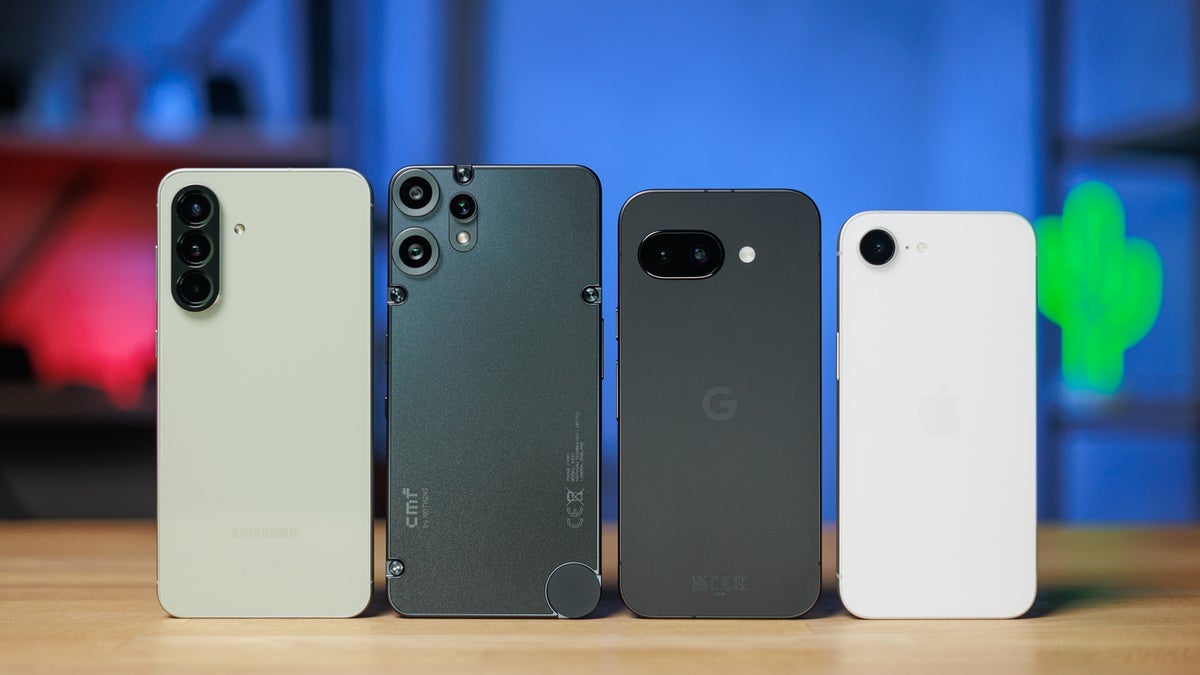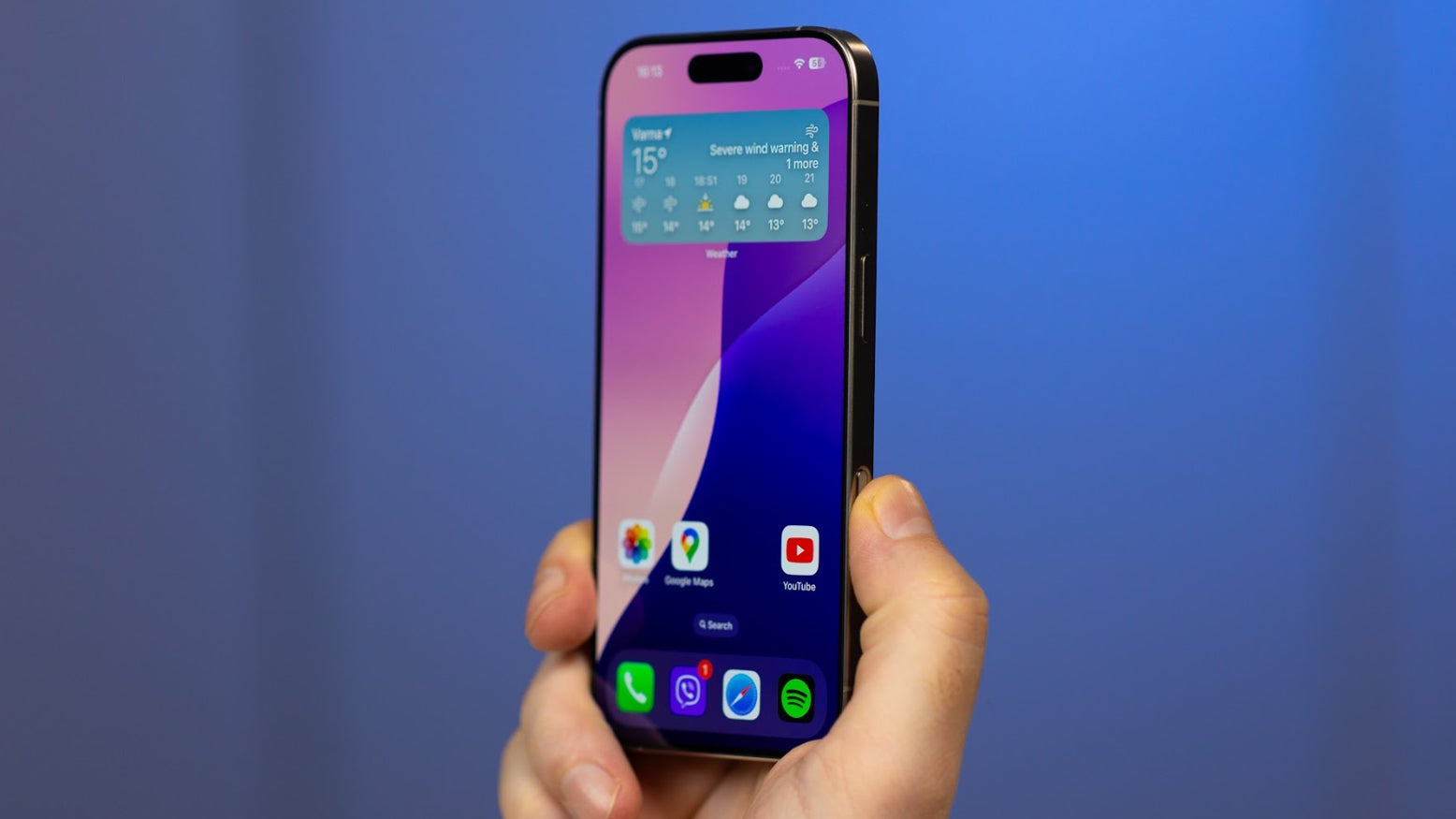The Best No-Code Android App Builders to Launch Your Mobile App in 2025
The mobile app market continues to explode, with billions of downloads yearly and no signs of slowing down. Yet many entrepreneurs, small business owners, and creators with brilliant app ideas lack the technical skills to bring their visions to life. Enter no-code Android app builders, platforms that democratize app development by removing coding barriers. These powerful tools have revolutionized how we create mobile apps, making it possible for anyone to launch a professional Android application without writing a single line of code. Let's explore the top no-code Android app builders in 2025 that can help you transform your idea into a market-ready mobile app. Why No-Code App Builders Are Booming The surge in no-code platforms stems from a simple reality: traditional app development is expensive, time-consuming, and technically demanding. No-code tools address these challenges by providing visual interfaces that replace coding with intuitive drag-and-drop actions. They come loaded with pre-built templates and components for common app features, while automatically handling technical elements like database connections and API integrations. The benefits extend beyond just simplicity, these platforms offer significant cost reduction compared to hiring developers and dramatically faster time-to-market for your app ideas. This makes them accessible to entrepreneurs, small businesses, and creative individuals who previously couldn't afford custom development. According to recent industry data, by 2025, no-code platforms are expected to handle over 65% of application development activities. This reflects a fundamental shift in how digital products are created and brought to market. Top No-Code Android App Builders for 2025 1. Adalo Adalo has established itself as one of the most comprehensive no-code platforms for creating visually stunning and functional Android apps. Adalo offers an intuitive visual editor with extensive customization options and native app publishing capabilities for both Android and iOS. Users appreciate its built-in database with relational capabilities, seamless integration with external APIs and services, and responsive design tools that adapt to various screen sizes. Perfect for: Small businesses and startups wanting a balance of simplicity and advanced features, especially those focused on creating visually impressive apps. 2. Instance Instance represents the cutting-edge of AI-powered app creation. What makes Instance stand out is its conversational approach to app building, you simply describe what you want to build, and the AI handles the technical implementation. Instance features an AI-driven "vibe coding" interface that turns descriptions into functional code, requiring zero technical knowledge from users. The platform provides instant hosting with custom domain options and supports both mobile app and web app creation. Its growing community of creators sharing their projects also provides inspiration and examples of what's possible. Perfect for: Creative professionals, non-technical founders, and entrepreneurs who want to quickly transform ideas into working apps without learning technical interfaces. 3. AppyPie AppyPie offers one of the most accessible entry points into Android app development with its straightforward interface and extensive template library. The platform features a simple, wizard-based app creation process and an extensive template gallery for various industries. AppyPie supports push notification capabilities, multiple monetization options including ads and in-app purchases, and provides real-time preview on virtual devices to test your app during development. Perfect for: First-time app creators, small business owners, and those who need to launch quickly with minimal learning curve. 4. FlutterFlow FlutterFlow brings the power of Flutter's native performance to no-code development, offering a unique compromise between coding and no-code tools. FlutterFlow produces high-performance apps based on the Flutter framework and supports advanced animation capabilities. Users can create custom logic and workflows while generating clean, exportable code (helpful if you eventually want to hand off to developers). The platform also offers deep Firebase integration for powerful backend functionality. Perfect for: More technically inclined users who want native performance without coding, or teams that might eventually transition to custom development. 5. BuildFire BuildFire combines simplicity with powerful functionality through its extensive plugin marketplace, making it ideal for creating feature-rich apps. The platform uses a plugin-based architecture for easy feature addition and comes with a real-time app previewer that updates instantly as you make changes. BuildFire supports social media integration capabilities and offers white-label options for agencies. Their scalable p
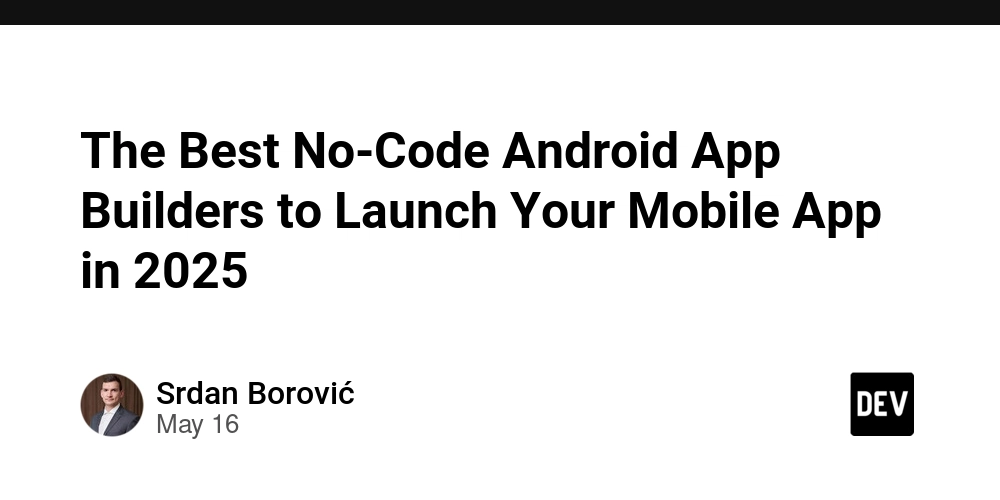
The mobile app market continues to explode, with billions of downloads yearly and no signs of slowing down. Yet many entrepreneurs, small business owners, and creators with brilliant app ideas lack the technical skills to bring their visions to life. Enter no-code Android app builders, platforms that democratize app development by removing coding barriers.
These powerful tools have revolutionized how we create mobile apps, making it possible for anyone to launch a professional Android application without writing a single line of code. Let's explore the top no-code Android app builders in 2025 that can help you transform your idea into a market-ready mobile app.
Why No-Code App Builders Are Booming
The surge in no-code platforms stems from a simple reality: traditional app development is expensive, time-consuming, and technically demanding. No-code tools address these challenges by providing visual interfaces that replace coding with intuitive drag-and-drop actions. They come loaded with pre-built templates and components for common app features, while automatically handling technical elements like database connections and API integrations.
The benefits extend beyond just simplicity, these platforms offer significant cost reduction compared to hiring developers and dramatically faster time-to-market for your app ideas. This makes them accessible to entrepreneurs, small businesses, and creative individuals who previously couldn't afford custom development.
According to recent industry data, by 2025, no-code platforms are expected to handle over 65% of application development activities. This reflects a fundamental shift in how digital products are created and brought to market.
Top No-Code Android App Builders for 2025
1. Adalo
Adalo has established itself as one of the most comprehensive no-code platforms for creating visually stunning and functional Android apps.
Adalo offers an intuitive visual editor with extensive customization options and native app publishing capabilities for both Android and iOS. Users appreciate its built-in database with relational capabilities, seamless integration with external APIs and services, and responsive design tools that adapt to various screen sizes.
Perfect for: Small businesses and startups wanting a balance of simplicity and advanced features, especially those focused on creating visually impressive apps.
2. Instance
Instance represents the cutting-edge of AI-powered app creation. What makes Instance stand out is its conversational approach to app building, you simply describe what you want to build, and the AI handles the technical implementation.
Instance features an AI-driven "vibe coding" interface that turns descriptions into functional code, requiring zero technical knowledge from users. The platform provides instant hosting with custom domain options and supports both mobile app and web app creation. Its growing community of creators sharing their projects also provides inspiration and examples of what's possible.
Perfect for: Creative professionals, non-technical founders, and entrepreneurs who want to quickly transform ideas into working apps without learning technical interfaces.
3. AppyPie
AppyPie offers one of the most accessible entry points into Android app development with its straightforward interface and extensive template library.
The platform features a simple, wizard-based app creation process and an extensive template gallery for various industries. AppyPie supports push notification capabilities, multiple monetization options including ads and in-app purchases, and provides real-time preview on virtual devices to test your app during development.
Perfect for: First-time app creators, small business owners, and those who need to launch quickly with minimal learning curve.
4. FlutterFlow
FlutterFlow brings the power of Flutter's native performance to no-code development, offering a unique compromise between coding and no-code tools.
FlutterFlow produces high-performance apps based on the Flutter framework and supports advanced animation capabilities. Users can create custom logic and workflows while generating clean, exportable code (helpful if you eventually want to hand off to developers). The platform also offers deep Firebase integration for powerful backend functionality.
Perfect for: More technically inclined users who want native performance without coding, or teams that might eventually transition to custom development.
5. BuildFire
BuildFire combines simplicity with powerful functionality through its extensive plugin marketplace, making it ideal for creating feature-rich apps.
The platform uses a plugin-based architecture for easy feature addition and comes with a real-time app previewer that updates instantly as you make changes. BuildFire supports social media integration capabilities and offers white-label options for agencies. Their scalable pricing structure adapts based on your specific needs.
Perfect for: Businesses wanting to create apps with specific functionality without getting bogged down in technical details.
6. Glide
Glide revolutionized app building by turning spreadsheets into beautiful, functional apps, making it perfect for data-driven applications.
Glide builds apps directly from Google Sheets or Excel data through a simple interface focused on data presentation. The setup process is remarkably quick, often taking under an hour from start to finish. The platform features automatic data synchronization and role-based access control for team apps, making it highly practical for collaborative environments.
Perfect for: Businesses with existing spreadsheet data, internal team tools, and anyone who needs to create data-driven applications quickly.
7. AppMySite
AppMySite specializes in turning websites, particularly WordPress sites, into fully functional Android apps.
This platform offers direct WordPress and WooCommerce integration with easy synchronization between your website and mobile app. AppMySite includes push notification management, comprehensive app analytics and tracking tools, and requires no recurring maintenance since updates to your website automatically reflect in the app.
Perfect for: Website owners wanting to extend their online presence to mobile without starting from scratch.
8. Andromo
Andromo focuses on monetization potential, making it an excellent choice for creators looking to generate income from their apps.
Andromo offers a revenue-focused feature set including multiple ad formats and an activity-based app structure. The platform generates native code for optimal performance and provides content-focused app templates for wallpapers, audio, and similar media-rich applications. Users appreciate the platform's performance optimization for various devices.
Perfect for: Content creators and entrepreneurs focusing on monetizing digital content through mobile apps.
How to Choose the Right No-Code App Builder
With so many options available, selecting the right platform requires careful consideration of your specific needs:
Consider Your Technical Comfort Level
Some platforms like Instance.so require virtually no technical knowledge, while others like FlutterFlow benefit from some technical background. Be honest about your skills and choose accordingly.
Evaluate Your App's Complexity
Simple apps with standard features work well on most platforms, but if you need complex functionality or custom features, look for platforms with extensibility options or plugin marketplaces.
Factor in Budget Constraints
Pricing models vary widely—from free tiers with platform branding to expensive enterprise packages. Consider not just current costs but how they'll scale as your app grows.
Think About Long-Term Maintenance
Apps need updates and improvements over time. Some platforms make this easy with visual editors, while others might lock you into their ecosystem, making changes costly or complicated.
Test the Platform's Support System
Quality support can make or break your app development experience. Look for platforms with responsive support teams, comprehensive documentation, and active user communities.
The App Development Process with No-Code Builders
Creating an Android app with these platforms typically follows these steps:
- Planning: Define your app's purpose, target audience, and key features.
- Platform Selection: Choose the no-code tool that best matches your requirements based on the factors above.
- Design: Select a template or create your layout using the platform's design tools.
- Content and Functionality: Add your content, set up databases, and configure features.
- Testing: Preview your app on virtual or physical devices to ensure it works as expected.
- Publishing: Follow the platform's process to package your app and submit it to the Google Play Store.
- Marketing and Growth: Promote your app and gather user feedback for improvements.
Common Pitfalls to Avoid
Even with no-code tools, app development comes with challenges. Resist the temptation to add too many features initially; instead, start with your core functionality and expand later. Many first-time creators prioritize flashy elements over user experience, but easy navigation and clean design will always win out with users.
Don't underestimate the importance of thorough testing across different devices and Android versions before launch. Familiarize yourself with Google Play Store policies to avoid rejection during the submission process. And finally, plan for regular updates from the beginning, apps require ongoing maintenance to fix bugs and add improvements based on user feedback.
The Future of No-Code App Development
The no-code movement continues to gain momentum, with platforms becoming more sophisticated and capable each year. Looking ahead, we can expect:
- More AI integration to simplify complex functionality
- Improved performance of no-code apps, approaching that of traditionally developed applications
- Greater specialization of platforms for different industries and use cases
- Enhanced collaboration features for team development
- Better integration with emerging technologies like AR, VR, and IoT
Conclusion
The barriers to creating Android apps have never been lower. Whether you're a solopreneur with a vision, a small business owner looking to reach mobile customers, or a creator wanting to monetize your content, today's no-code app builders provide the tools you need to succeed.
By choosing the right platform for your needs and following a structured development process, you can launch your Android app in 2025 without writing a single line of code. The question is no longer "Can I build an app?" but rather "Which app should I build first?".









![Epic Games: Fortnite is offline for Apple devices worldwide after app store rejection [updated]](https://helios-i.mashable.com/imagery/articles/00T6DmFkLaAeJiMZlCJ7eUs/hero-image.fill.size_1200x675.v1747407583.jpg)

































































































































































![[The AI Show Episode 146]: Rise of “AI-First” Companies, AI Job Disruption, GPT-4o Update Gets Rolled Back, How Big Consulting Firms Use AI, and Meta AI App](https://www.marketingaiinstitute.com/hubfs/ep%20146%20cover.png)































































































































![How to make Developer Friends When You Don't Live in Silicon Valley, with Iraqi Engineer Code;Life [Podcast #172]](https://cdn.hashnode.com/res/hashnode/image/upload/v1747360508340/f07040cd-3eeb-443c-b4fb-370f6a4a14da.png?#)

















































































































.png?width=1920&height=1920&fit=bounds&quality=70&format=jpg&auto=webp#)





















![[Virtual Event] Strategic Security for the Modern Enterprise](https://eu-images.contentstack.com/v3/assets/blt6d90778a997de1cd/blt55e4e7e277520090/653a745a0e92cc040a3e9d7e/Dark_Reading_Logo_VirtualEvent_4C.png?width=1280&auto=webp&quality=80&disable=upscale#)














































































-xl-(1)-xl-xl.jpg)


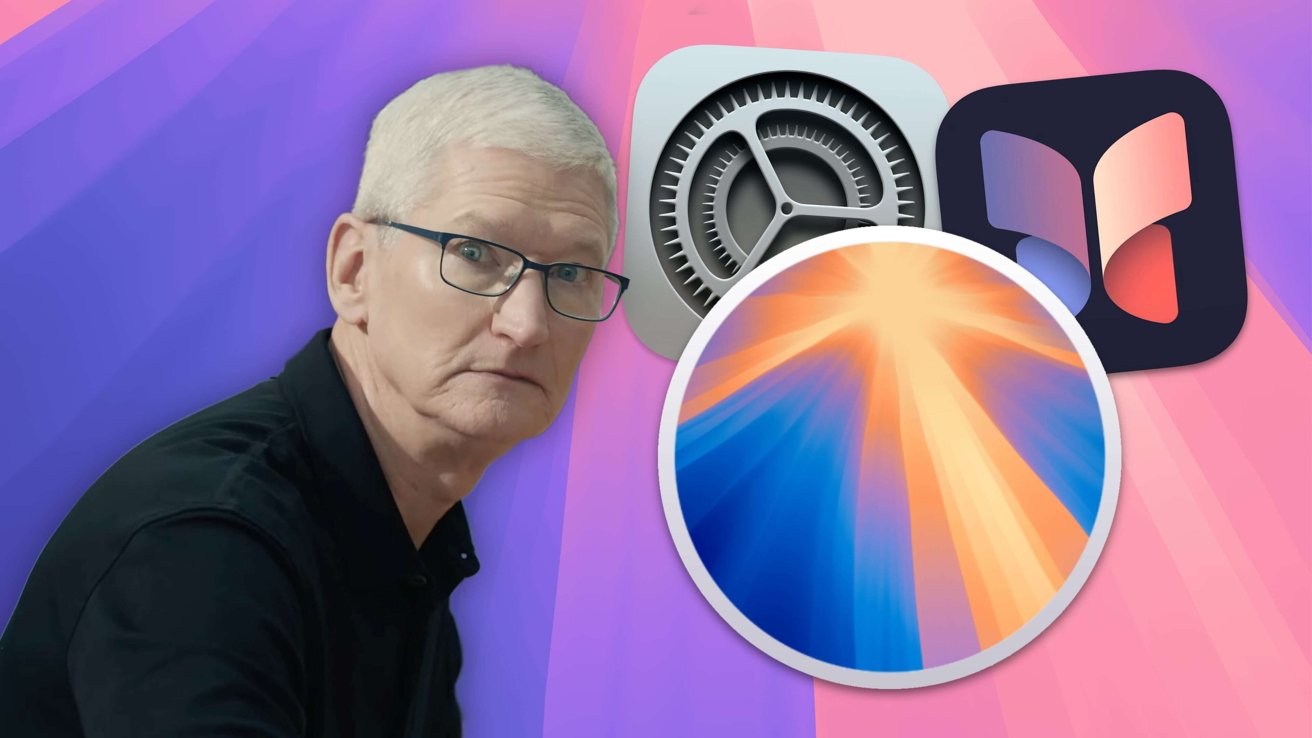
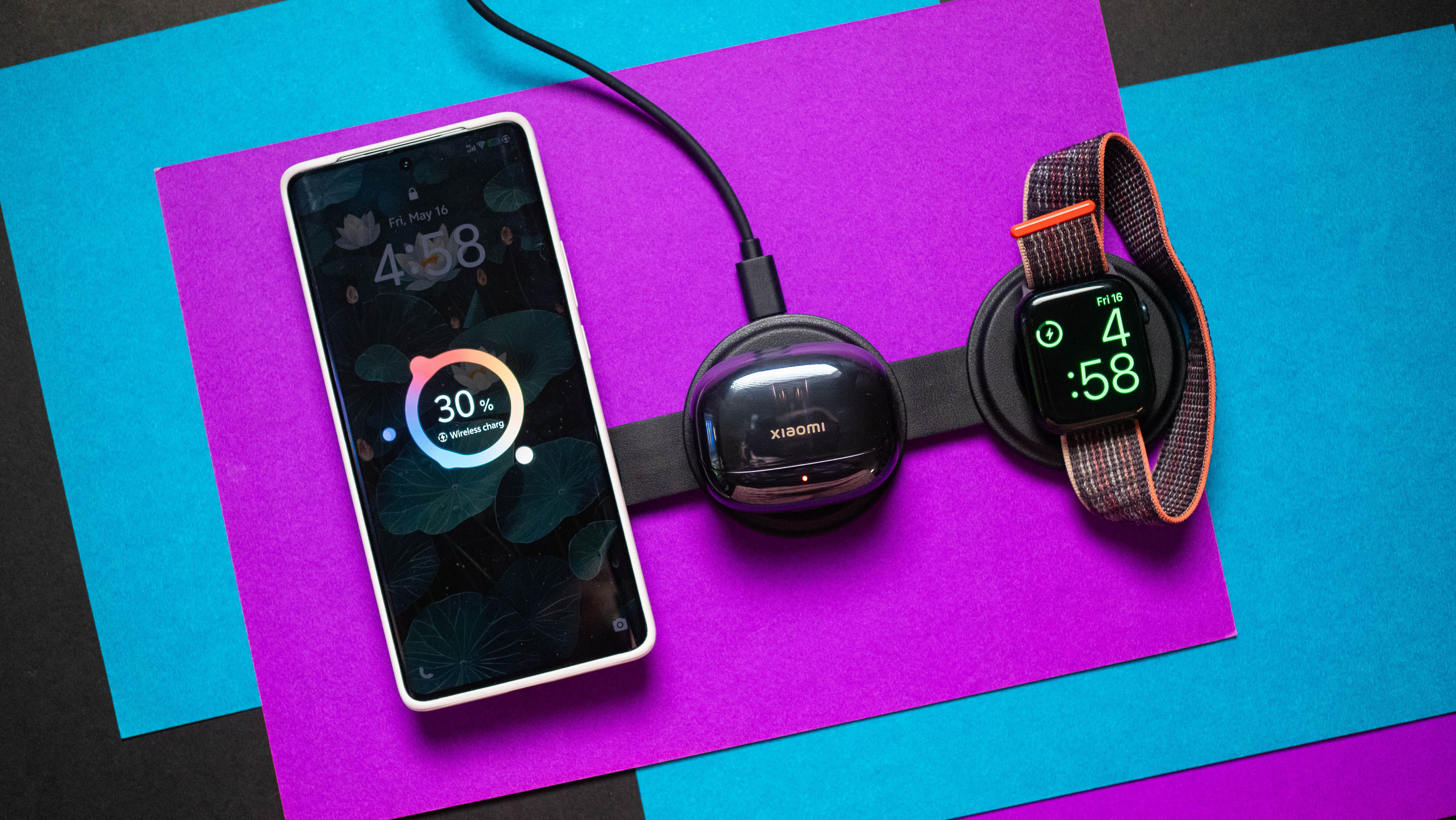
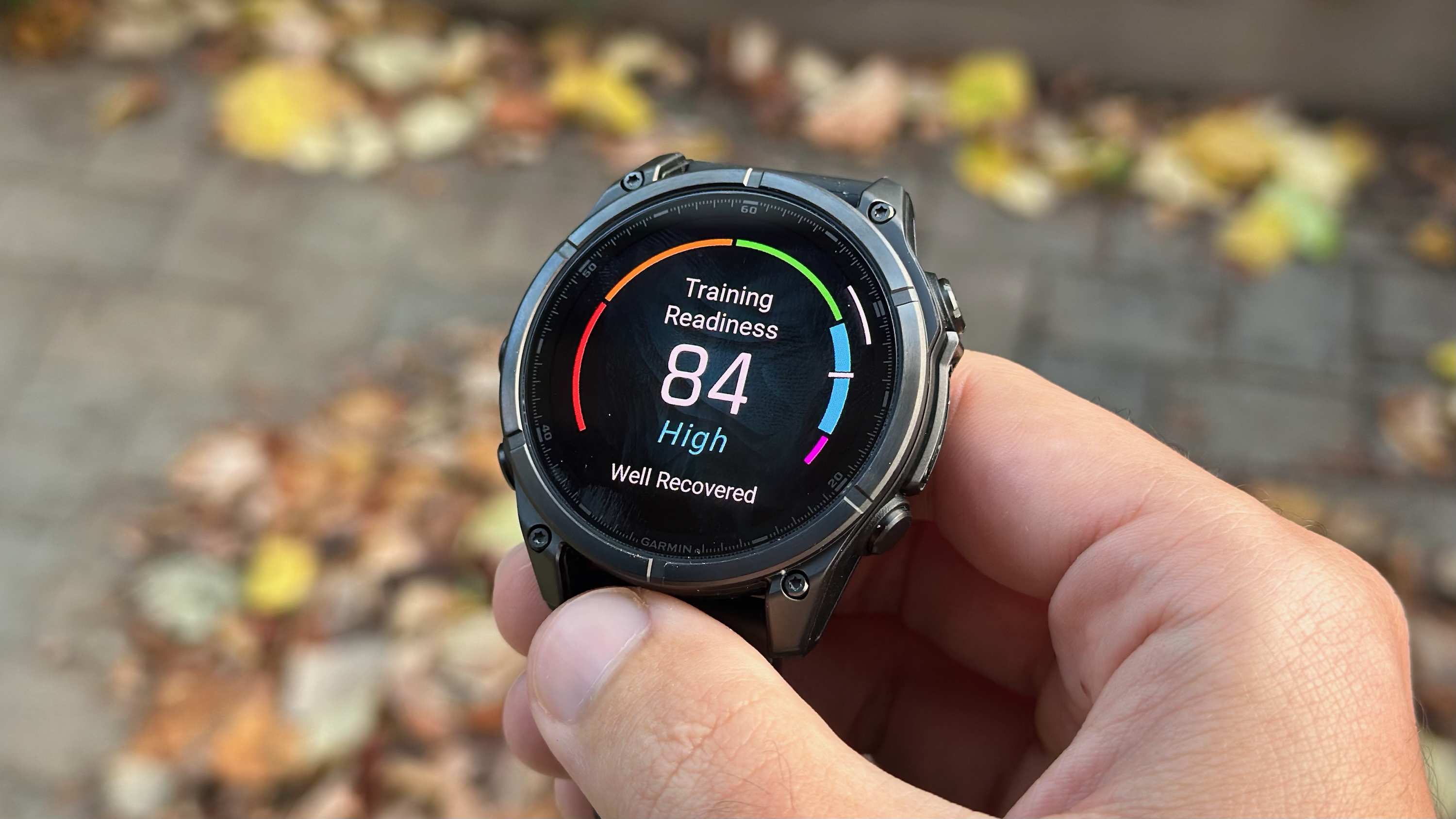






![How to upgrade the M4 Mac mini SSD and save hundreds [Video]](https://i0.wp.com/9to5mac.com/wp-content/uploads/sites/6/2025/05/M4-Mac-mini-SSD-Upgrade-Tutorial-2TB.jpg?resize=1200%2C628&quality=82&strip=all&ssl=1)
![‘Apple in China’ book argues that the iPhone could be killed overnight [Updated]](https://i0.wp.com/9to5mac.com/wp-content/uploads/sites/6/2025/05/Apple-in-China-review.jpg?resize=1200%2C628&quality=82&strip=all&ssl=1)











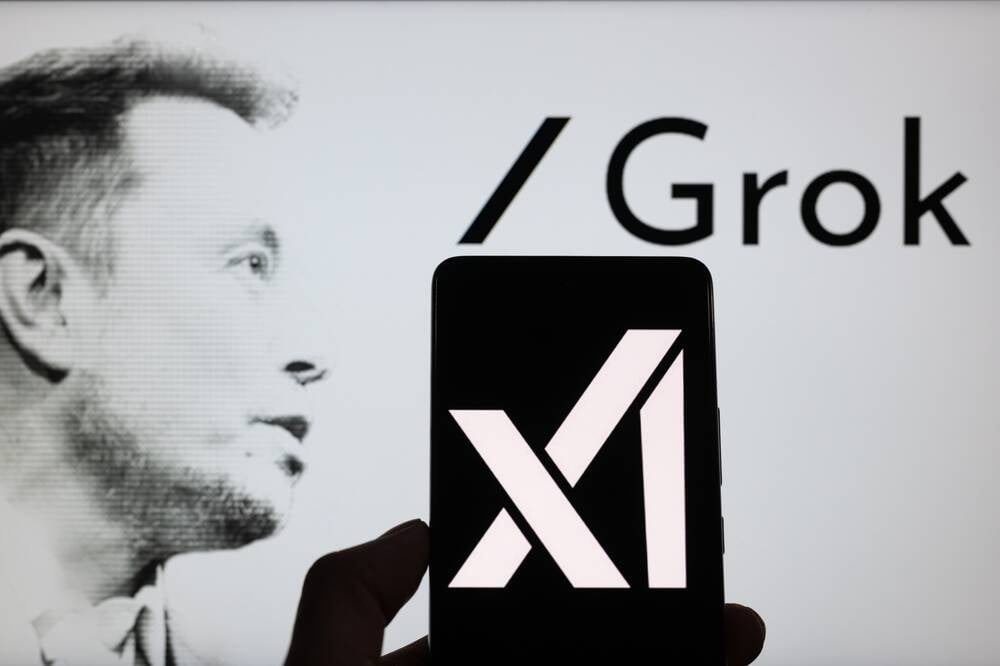


![iPhone 17 Air Could Get a Boost From TDK's New Silicon Battery Tech [Report]](https://www.iclarified.com/images/news/97344/97344/97344-640.jpg)
![Vision Pro Owners Say They Regret $3,500 Purchase [WSJ]](https://www.iclarified.com/images/news/97347/97347/97347-640.jpg)
![Apple Showcases 'Magnifier on Mac' and 'Music Haptics' Accessibility Features [Video]](https://www.iclarified.com/images/news/97343/97343/97343-640.jpg)
![Sony WH-1000XM6 Unveiled With Smarter Noise Canceling and Studio-Tuned Sound [Video]](https://www.iclarified.com/images/news/97341/97341/97341-640.jpg)
























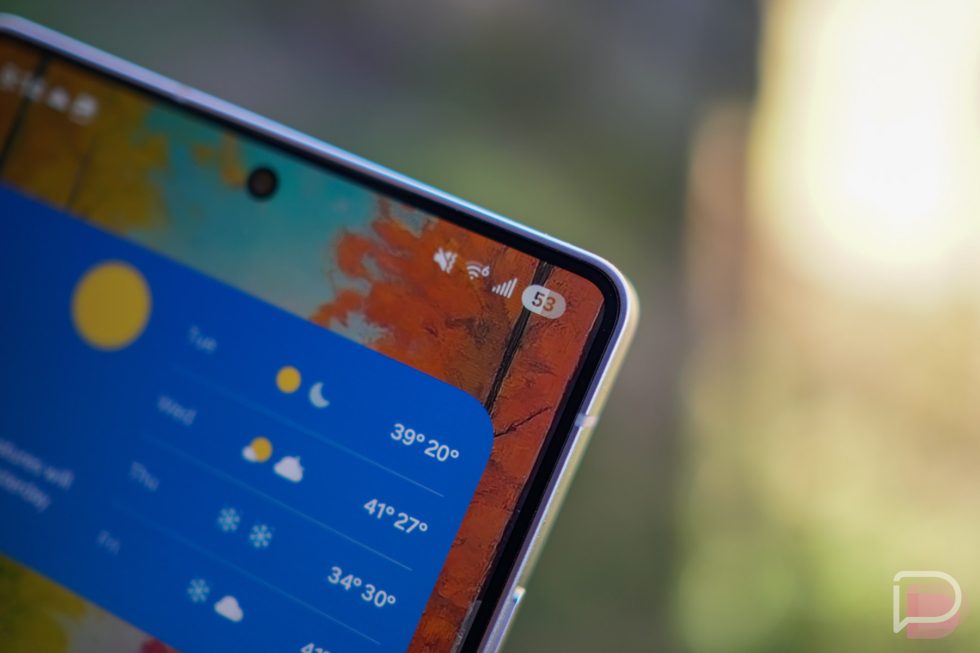

















![Apple Stops Signing iPadOS 17.7.7 After Reports of App Login Issues [Updated]](https://images.macrumors.com/t/DoYicdwGvOHw-VKkuNvoxYs3pfo=/1920x/article-new/2023/06/ipados-17.jpg)







